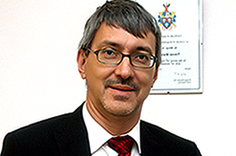A Review of Current status of Hotels listed in 2019 Pipeline Report
Our ‘Pipeline’ report has just been published, showing a total pipeline of 401 new hotels due to open between 2019 and 2026, with just over 75,000 rooms. Of those, 110 deals were signed in 2018 and the first couple of months of 2019, accounting for 18,651 rooms.
Do you really want a robot to deliver your room service order? There have been a couple of reports
recently about hotels in Asia and their experiences with robot staff, both positive and negative
A recent report from the Lagos State government said that Lagos had a record December, with spending of more than NGN50 billion (that’s about US$140 million, or US$4.5 million each day) in the hospitality and
entertainment sector, mostly over the Christmas and New Year holidays.
Just when we thought we had just about everything thinkable in terms of business ideas related to the sharing economy, up springs coworking spaces. We shared cars with Uber, our homes with Airbnb, and now we work together.
7 Key Areas for People Management in the Hospitality Industry in Africa
One of the major challenges we face in our industry is human capital development, particularly here in Africa. Imagine my delight at being invited to a workshop on Sustainable Tourism in Africa to reconsider employment and human capacity development for our region. For anyone working in this industry, this concern will always be in the forefront.
Indeed, I captured the title for this article from Professor Thomas Baum of the University of Strathclyde at a workshop I attended which was held in Johannesburg in September 2017 (By the way, the ‘P’ stands for people!). A Newton Fund-sponsored event, tourism scholars from Kenya, Zambia, Zimbabwe, Nigeria, Ghana, South Africa and the United Kingdom all gathered together at the University of Johannesburg for a gruelling week of presentations and, of course, the statutory tour of the sights and sounds of the amazing city of Jozi!
One of the key ideas that came through from the workshop was the need to find home-grown solutions to the challenges facing human capital development in the tourism industry in Africa. Now this bedrock idea germinated into several mini-ideas in my mind, like what are the issues that exist within the people space in tourism? What do human resource directors identify as their main issues? What do the employees themselves think are their issues? Middle management? Owners and investors? Think about it, by considering the different perspectives each stakeholder group might have, we create a mine of data that could provide the very answers we seek.
My thinking is that before we proffer ready-made solutions for how things could be made better, we need to spend more time digging and getting to the root of the matter. Sub-Saharan Africa is currently the largest growth market for hotels in the world. We need to think how to bring our people up to scratch to support this growth. First stop, what do the HR directors think?
Early December 2017, I organised a focus group discussion with three human resource directors from international chain hotels in Lagos. They shared their experiences and gave first-hand insights into their HR concerns. We concluded that people management for the hotel sector needs to focus on seven core areas:
Each one of these concerns is a challenge in its own right, but holds the key for putting the ‘P’ back in tourism!
So this basically sums up what will be the focus of the series of articles that I will be posting over the coming year. Looking at these core areas, we will explore where we are right now in terms of human capital development, and what we need to do in order to get to where we need to be.
I end with a quote from one of the HR directors:
“You have to be on the shop floor, helping the people…you have your HR coordinators who do the nitty-gritty work for you. But you, the HR Director, you have to be on the floor with the people, talking to them, encouraging them!”
This promises to be an exciting exploration of the deeper perspectives. Hold tight!
Terrorism is an unfortunate “fact of life” that has plagued society throughout the whole of the last two millennia. In recent years an increasing number of attacks, across a wider part of the world, have led to a changing dynamic in relation to the impact of such attacks.
In this research paper David Harper, Head of Property Services for Hotel Partners Africa, provides some unique research on the impact of such terror attacks, with the help of hotel trading statistics and analysis, carried out by STR.
The impact of terrorism on the hotel and resort market in Africa has been substantial over the last few years, making the need for careful analysis of the phenomena essential.
The research bears out the following 13, important conclusions, with some significant implications for how countries and the Travel & Tourism industry deal with terror attacks:
1. The impact of terror attacks across the world is lessening
2. There has been a marked rise in terror attacks in recent years
3. The average casualty count has declined in recent years
4. In general, international tourism is resilient to terrorism
5. Recovery times for all types of locations are improving
6. Recovery time depends on the profile and scale of the market place
7. The impact of terrorism varies by political regime, income and tourism intensity
8. The long-term impact depends on the public perception of safety and on the trust placed in the authorities in that location
9. Political unrest has a longer-term impact than a terrorist attack
10. Frequency of attacks has a greater effect than the severity of an attack
11. The coverage in the media has an important impact on trading
12. The impact of an attack tends to be region-wide, so there is a financial imperative on neighbouring countries to try and stop any attacks being made on their neighbours
13. On average you are five times as likely to die by falling out of bed than you are to die as a result of a terrorist attack
For further information or for a copy of the full research paper, please contact David Harper at [email protected]

Trevor Ward
Mobile: +234 803 321 0646
[email protected]
It was such a pleasure to stay in the new Fraser Suites hotel in Abuja recently.It had been a long time coming,and before opening was the only internationally-branded hotel under construction in central Abuja. It is now the first such property to open in Abuja for eight years – whilst the pipeline of new hotels is quite large, still none of them has broken ground.
The Fraser Suites in Abuja has 126 rooms and apartments, ranging from studios to four-room apartments, all with kitchenettes or full-on luxury kitchens, which many of us would love to have at home. And that’s one of the pillars of the extended-stay concept, that guests who are staying for a long time (several weeks and more) will treat these apartment as their own, enjoying the flexibility, privacy, routine and comfort of home. Says one of the Hilton executives in charge of extended- stay brands: “the guest who has a longer stay has different needs and those needs drive behaviour: a focus on the stay experience and the living space; a desire to maintain their normal routine; and a need to feel nurtured and taken care of while away from home and loved ones.”
Many hotels claim (and surely many are tongue-in-cheek!) to be ‘home away from home’, but when you’re stuck in a bedroom with a chair and a bed, sometimes with a kettle and poor quality instant coffee to keep you company, that certainly ain’t nothing like my home! The living space experience is of great importance… I want a sofa to sit on, please, not just a chair, and enough room to spread my stuff around without having to extend to piles of paper on the bed.
Back to the Fraser Suites in Abuja. Not only a squeaky clean new hotel, but one that has been finished to a very high standard, much higher than many new hotels in Nigeria. Despite the fact that the owners are new to the industry, they understand that quality matters, and have delivered a very high quality product. Consequently, they are able to command a premium price for their rooms and apartments,and the product has been welcomed by the market, with various foreign embassies and international customers already signed up to stay there.
I love extended-stay hotels, both as a guest and as a commentator on the industry. As a guest, I like the extra space and privacy, particularly the separation between living and sleeping (no more sitting on the bed to view the TV properly). Have I ever stayed in one for a long time? Nope! That’s not my travel behaviour. I’m usually a one or two-night man, but extended-stay hotels are just as attractive to me as they are to the guy staying for weeks or months. Whilst the operator of an extended-stay hotel would love to fill the whole inventory with long-stay guests, it rarely happens, so transients like me are also welcome, when rooms are available. According to Hilton, only a third of guests staying in their Homewood Suites hotels are long-stay, the rest are transient.
An aside about terminology. In Europe, brands tend to call their properties serviced apartments(Fraser Suites call themselves that), whilst others use the expression ‘aparthotels’. Extended- stay is a US term, which I favour, because I find that serviced apartments are often merely apartment blocks with a reception, maybe a pool and occasional housekeeping services. Brands like Fraser Suites are definitely not that, they are further along the scale to being a proper hotel. Now here’s an interesting fact– in a survey of American users of extended-stay accommodation, only 7% of business travellers, and 9.7% of leisure travellers, want a fully-fitted kitchen when on an extended trip away from home. Let’s face it, how many business travellers are likely to whip up a meal for themselves? What guests really want is a complimentary breakfast and free wi-fi – tops for almost 75% of business travellers and almost 70% of leisure travellers (Fraser Suites Abuja provides both). Who else is in this space? In our 2017 data we have 12 extended-stay hotels in the chains’ development pipelines, out of a total of 417 properties. Marriott leads with six properties, Residence Inn and Element; Frasers Hospitality has another Fraser Suites planned in Brazzaville; and there’s a Hyatt House, an Arjaan by Rotana, Accor’s Adagio and the Executive Residency by Best Western in Nairobi (now open)…not just the first of the brand in Africa but one of the first globally.
For investors, extended-stay makes a lot of sense – occupancies tend to be higher than in full- service hotels, operating expenses lower, and therefore profits are increased. So why aren’t there more extended-stay hotels in the pipeline in Africa? Partly I think it ’s because investors here are unfamiliar with the concept, and cannot envisage owning a hotel without multiple restaurants,bars, banquet halls and the like. And partly because some chains haven’t been pushing their extended-stay hotels on the continent, preferring to lead with their core brands first, and then fill in the gaps later.Well, that’s a maybe, but as far as I can determine, Fraser Suites in Abuja has taken the top spot in West Africa, at least for now.
Trevor Ward MD: W Hospitality Group